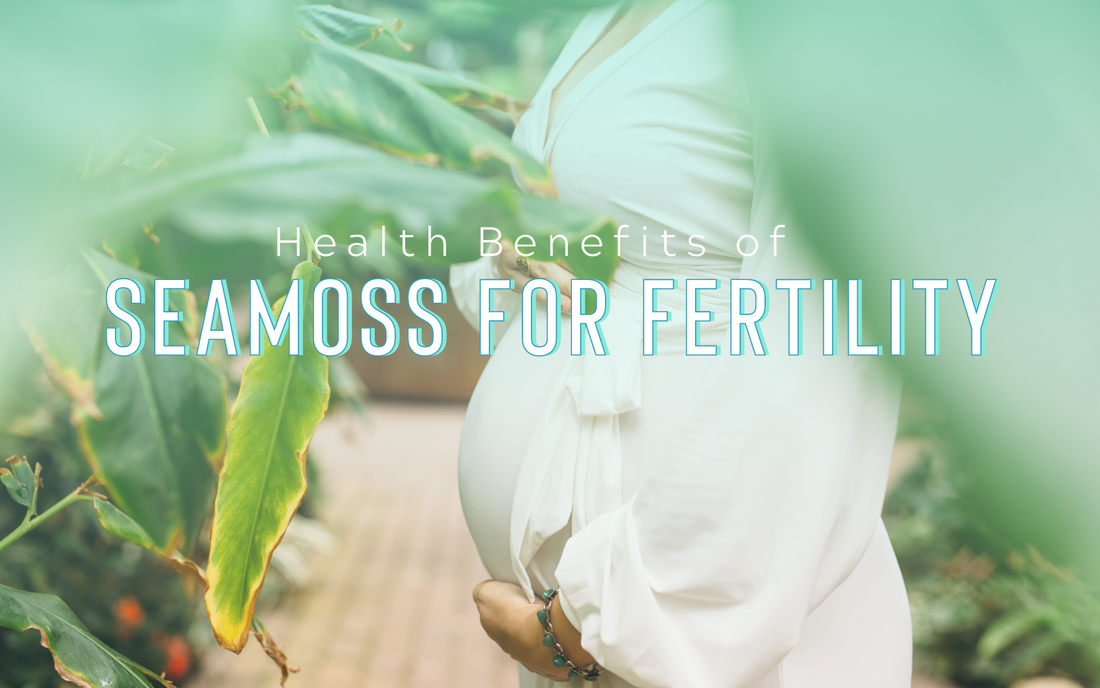Sea Moss and Fertility
According to the National Institutes of Health, about 11 percent of women in the United States have difficulty becoming or remaining pregnant. Similarly, 9 percent of men in the United States suffer from infertility.
Since fertility problems are so common, the market is flooded with goods that promise to improve your reproductive health instantly. How do you tell the difference between truth and fiction?
Sea moss (scientific name Chondrus crispus) is a superfood that contains over 90 essential vitamins, minerals, nutrients, and antioxidants that are necessary for your optimal health. Sea Moss is also well-known for its ability to increase the sexual wellbeing of both males and females. So what does science have to say about it?
This report will provide you with an impartial review of recent literature on sea moss nutrients, and their impact on reproductive health.
The Top Three Nutrients in Sea Moss That Make It a Fertility Superfood
If you are having fertility problems, the first thing you can look at is your diet. Are you deficient in any essential nutrients? According to research, essential micronutrients can be the source of infertility in up to 50 percent of cases of unexplained infertility.
What distinguishes sea moss is its ability to provide a combination of vital nutrients essential for fertility improvement. Iodine, folate, and iron are among these nutrients.
Iodine
Research published in the Journal for the American Medical Association investigated the connection between iodine deficiency and infertility. The findings were astounding. According to these findings, women who are deficient in iodine are 46 percent less likely to become pregnant than women who have normal iodine levels.
Iodine is the foundation of thyroid health. The thyroid is a gland in your neck that contains thyroxine, a hormone. Thyroxine regulates many main bodily functions, including appetite, brain activity, bone health, sexual health, and so on.
Whether you are pregnant or planning to conceive, the body's thyroxine requirements skyrocket. If you are iodine deficient during that period, your thyroid health and chances of getting pregnant will suffer.
Because of its high iodine content, sea moss can boost your chances of reproduction. Just 10 grams of sea moss contain more than 80g of iodine, which is more than half of the Recommended Daily Allowance (RDA) for this mineral.
Folate
If you or someone you know has been pregnant, you’re aware that the first thing doctors do is prescribe a folic acid or folate supplement. Have you ever asked why they do it?
There are some explanations for this. Years of study have established a clear correlation between folate deficiency in women and a high prevalence of birth defects (particularly defects affecting the brain and spinal cord) in their children. According to new findings, folate directly increases the odds of becoming pregnant.
In one study, scientists examined the impact of a multi-nutrient supplement (high in folate) on the likelihood of pregnancy. They discovered that the women taking supplements took less time to conceive.
A 64.4 percent increase of confirmed pregnancies among consumers occurred when taking supplements. This fertility-boosting nutrient is also abundant in sea moss. From 100 grams of sea moss, you get 182g (nearly 50% of the RDA for folate).
Iron
Iron is another nutrient that is needed for a variety of bodily functions. Red blood cell formation being one of them. Red blood cells transport oxygen across the body. Iron is the primary nutrient in red blood cells that binds to oxygen. When you are iron deficient, you experience anemia, which has a significant impact on the body's functions.
Your body cells do not act properly if they do not get the oxygen they need. Iron deficiency affects 7.8 million women in the United States. According to a study, if you supplement your diet with iron, you are more likely to get pregnant.
When it comes to iron, sea moss is a true wonder food. 100 grams of sea moss contains up to 9 mg of iron. It accounts for about 70 percent of the everyday body iron requirements.
Is Sea Moss the All-In-One Fertility Treatment?
There are a few things you can bear in mind.
#1: Infertility is often a complicated problem.
Nutritional disorders are only one of the many possible causes of infertility. Fertility is frequently a dynamic topic with issues rooted in your nutrition, lifestyle, and physical fitness. Although taking a sea moss supplement can help your reproductive health, it is not a cure-all.
# 2: Sea Moss is an adjuvant, not a substitute.
What you must remember is that sea moss is an adjuvant that you must take in addition to a balanced diet and an active lifestyle. It is not a supplement for safe living.
#3: Get the advice of a medical professional.
As previously mentioned, fertility is often a multifactorial problem. Although doing any detective work of your own is still worthwhile, you should not depend entirely on it.
Regarding any health-related matters, you can still obtain medical guidance from qualified practitioners. You should contact a doctor before taking any supplements.
Final Words
Without a doubt, sea moss is a fantastic superfood that is high in vital nutrients such as vitamins and minerals. In terms of fertility, taking a sea moss supplement is expected to increase fertility.
However, it should not be seen as a one-stop solution to fertility problems. Use it in conjunction with a nutritious diet, a balanced lifestyle, and medical recommendations.

